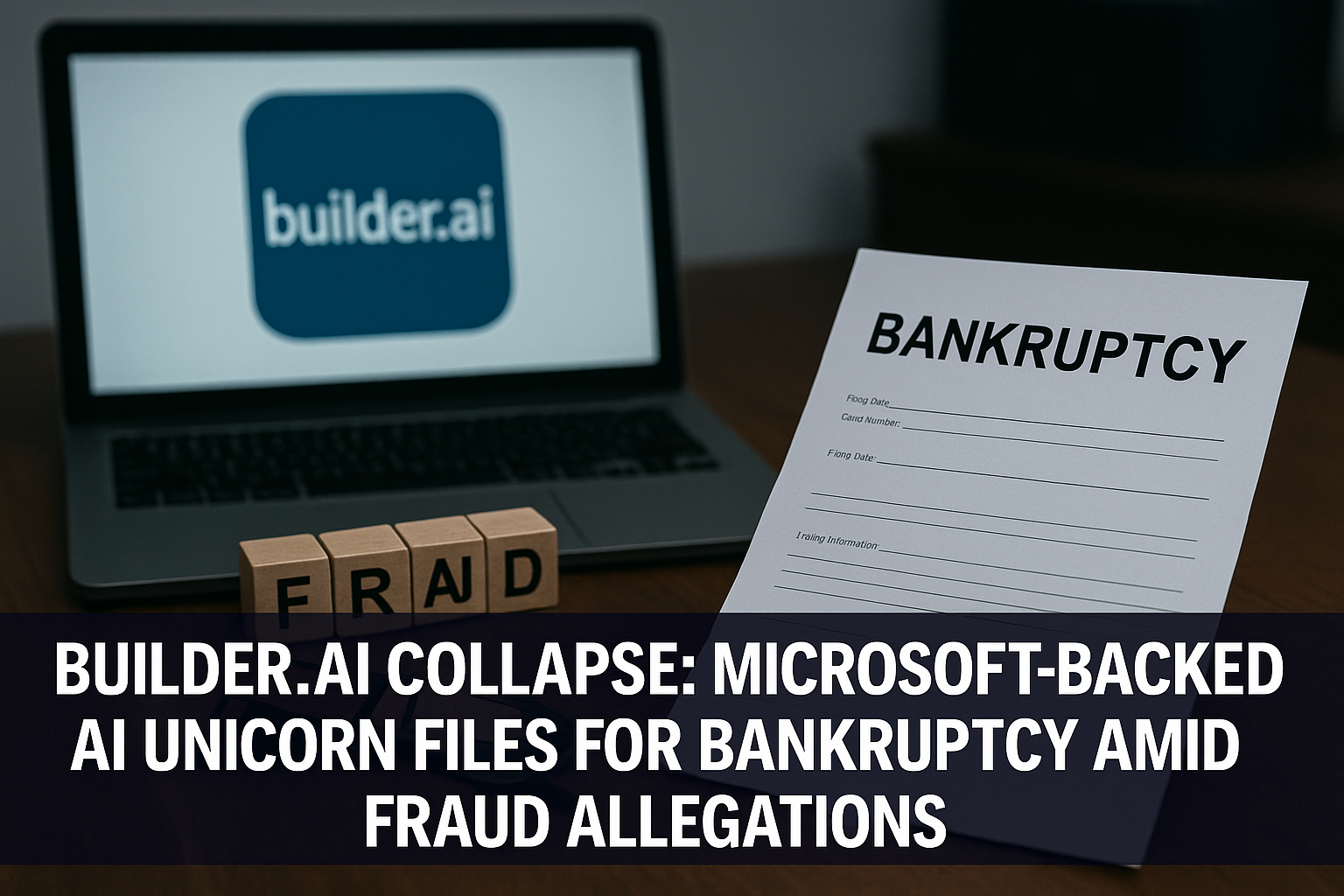The fall of Builder.ai marks one of the most dramatic failures in the AI startup world to date, as the once high-flying company backed by tech giant Microsoft and other major investors has filed for bankruptcy following explosive fraud allegations and financial disarray.
From Billion-Dollar Promise to Bankruptcy Filing
Builder.ai, a UK-based software development platform that promised to revolutionize app creation using artificial intelligence, captivated the tech industry with its bold vision. Prominent backers, including Microsoft and the Qatar Investment Authority, poured over half a billion dollars into the startup, driving its valuation close to $1 billion.

Positioning itself as the “Shopify for apps,” Builder.ai claimed to use AI to enable businesses to rapidly deploy customized software. But behind the scenes, insiders say, the company’s model was less about automation and more reliant on an army of human developers—many of whom were under intense pressure to meet inflated performance targets.
Fraud Allegations Rock the Startup
The situation came to a head when internal audits and whistleblower reports uncovered significant discrepancies in Builder.ai’s financial reporting. Allegations include overstated revenue, booking phantom contracts, and using deceptive practices to impress investors and lenders.
One particularly damaging revelation involved a $50 million credit facility, which lenders declared in default after detecting what they described as “material misrepresentations” in sales data. This action led to the freezing of key company funds and the unraveling of its operations.

Leadership Turmoil and Strategic Exit Attempts
Founder and former CEO Sachin Dev Duggal stepped down from day-to-day operations but retained a board seat. Sources close to the matter say Duggal is now attempting to buy back the company—or its core assets—through a controversial pre-packaged insolvency deal. While legal, such moves often attract criticism for allowing executives to regain control without addressing the fallout experienced by employees and creditors.
In a brief statement, a company spokesperson acknowledged the insolvency proceedings and said the company is “exploring strategic options to preserve value for stakeholders.” No mention was made of the fraud allegations.
A Symbol of Overhyped AI Ambitions
The downfall of Builder.ai is a stark reminder of the risks embedded in today’s AI startup frenzy. Fueled by speculative capital and grand promises, many ventures have surged in value without delivering fully autonomous solutions. Builder.ai’s collapse adds to growing skepticism about the substance behind some of Silicon Valley’s most-hyped companies.
Analysts warn that more shakeups could follow across the sector. “We’re now seeing the consequences of a funding environment that rewarded buzzwords over due diligence,” said one venture partner. “Builder.ai was a warning shot.”
The Road Ahead
As bankruptcy proceedings move forward, hundreds of employees face job uncertainty, customers are left with incomplete software builds, and investors brace for heavy losses. Creditors are actively pursuing recovery, and regulatory scrutiny may follow if fraud claims are substantiated in court.
What was once billed as a revolutionary AI disruptor now serves as a case study in overpromising and underdelivering. Whether parts of Builder.ai survive under new ownership remains to be seen—but its legacy as one of the AI industry’s cautionary tales is already firmly cemented.


